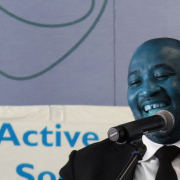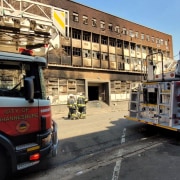|
Getting your Trinity Audio player ready...
|
By Thato Mahlangu
Accountability is in short supply for the widely publicised allegations of food parcel corruption, despite the abundance of videos circulating on social media that seem to indicate the complicity of certain individuals.
Since the start of the lockdown, almost three months ago, the economy has nosedived and millions of families have been unable to make ends meet.
The South African government has partnered with a number of community-based and civil society organisations and businesses to help these struggling families by providing food parcels. But some individuals have been accused of stealing these parcels for a profit, leaving more people in a hunger trap.
The Department of Social Development has blamed these alleged food parcel corruption incidents on uncoordinated food distribution efforts which are administered by different groups, including community-based and non-profit organisations (NPOs).
Minister Lindiwe Zulu said last month, that properly coordinated structures and mechanisms would have eliminated the corruption that has been reported in the various media platforms.
Greedy people add to the corruption problem
Zulu said people have been receiving double the amount of food parcels because of lack of coordination by these organisations when distributing the food parcels in communities.
“I would also like to request all those who have received the food parcels to please be considerate and not take more than your share. Please understand that our resources are limited, so when you take two instead of one food parcel, you are taking away from another vulnerable family,” Zulu said.
Political parties have been criticised for using food parcels to garner support for the upcoming elections, while claims of partisan distribution of essentials during the lockdown by these political parties have been heard.
Calls for accountability
Solidarity Helping Hand spokesperson Phillip Bruwer told Corruption Watch that organisations should ensure accountability and remain corruption-free, especially during this time.
“We never experienced corruption. All our workers and volunteers involved in our structures adhere to Solidarity Helping Hand’s Christian values and do their work out of passion, not self-enrichment. We also follow strict health and safety and auditing measures and can account for every donation we receive,” Bruwer said.
When asked if the organisation will agree to work with Zulu’s call for organisations to hand over food parcels to be distributed solely by the government, Bruwer said, “We will not allow them to tell us what to do with our food and donations. We know where the need is and will keep on focusing on our structures. We will fight, in court, any effort from government bodies to centralise or control food distribution.”
According to Bruwer, the organisation has helped 6 000 struggling families with food parcels and 400 other organisations, including old age and orphanage homes, have benefited. “We have a record of that – all that without a single cent or support from the government. On Friday we received a further R5-million worth of food, with which we will feed 5 000 families this week.”
Bruwer said people and political figures who are involved in stealing of food parcels meant for struggling people should face the full might of the law if found guilty. “They should be jailed and removed from their position of power. Like any normal and functioning NPO or company, the government should be able to account for every single donation received and what happens with it.”
Effective distribution can help curb corruption
Noks Ndaba, GM of the Mthethwa Family Development Foundation, said distribution can be easy when the planning is executed properly. The Pretoria East based foundation was established in 2009 by businessman Shadrack Mthethwa and his wife, and assists underprivileged children and youth by providing educational opportunities, among other social development programmes it runs yearly.
“The social development department needs to have a national database per province, per municipality, and per area of location, with a full indication of the person’s details and household details of how many should be benefiting from the parcels,” Ndaba said. Furthermore, when collecting food an identity document should be requested as this will prevent people from getting food parcels more than once.
Jam International country director David Brown said a food voucher system would help eradicate corruption. “Rather distribute by means of a food voucher system with strong controls and audits to ensure there is no corruption and that the food reaches those most at risk and in need.”
Andy Du Plessis, MD of FoodForward SA, said he thinks only community-based organisations should be tasked with the distribution of the parcels. “Our view is that NPOs work in the social welfare space and know their communities. Government is too close to the party-political affiliations and also does not have the capacity to do large-scale food distribution.”








